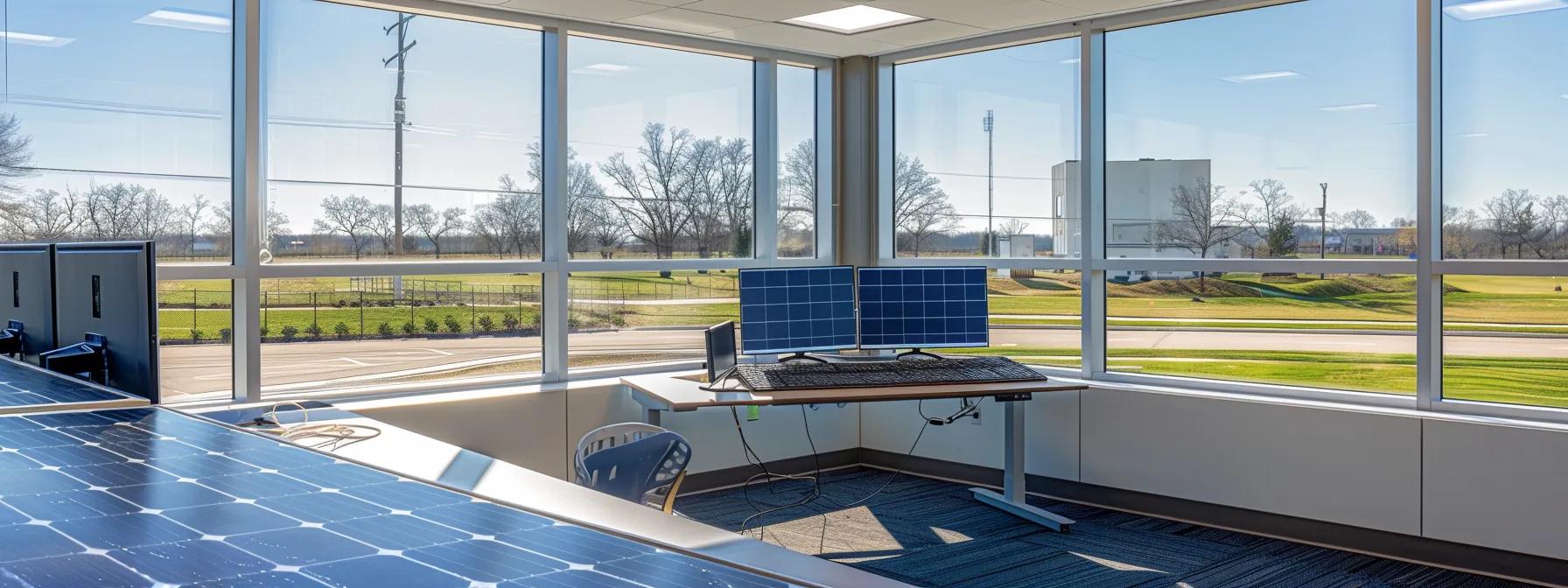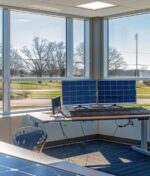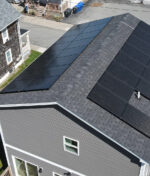
Discover the Top Solar Panel Companies for Your Needs
Rhode Island Solar: The Complete Guide in 2025
This comprehensive guide explores solar power in Rhode Island as a solution for homeowners and businesses seeking energy independence and cost-effective renewable energy options. The article examines why considering solar power in RI is important, breaking down its multiple benefits—from reducing carbon footprints and lowering energy bills to increasing property values. In addition to these advantages, readers will learn how solar panels affect electric power generation, influence greenhouse gas emissions, and support sustainable initiatives. Through detailed explanations, real-world examples, and scientific research data, this guide offers a solid foundation for making informed energy decisions. Emphasizing keywords such as customer, newport solar, green house gas emissions, tax, rebate, payback period, solar companies, energy independence, electrical grid, and many more, the article is designed to address practical, transactional, and informational queries. With insights into financing options, cutting-edge solar technology, and local incentives, it provides actionable recommendations for maximizing savings and contributing to environmental justice. Let this guide be your starting point to understand if solar energy is the right fit for your home or business, and how Rhode Island’s renewable energy landscape can empower you for years to come. Transitioning now to the main points, we begin with reasons why solar power in RI should be seriously considered.
Why Consider Solar Power in RI for Your Home

Considering solar power in Rhode Island represents a strategic move for homeowners and businesses keen on reducing monthly energy bills while contributing to a cleaner environment. The primary reason to adopt solar energy is to achieve greater energy independence by reducing reliance on traditional electric grids that are subject to price fluctuations and regulatory changes. Solar installation offers an excellent opportunity to harness electric power generated from an abundant and continuous source: the sun. With solar panels, customers benefit from stable and predictable energy costs, often locked in over decades, which directly addresses the challenges posed by rising utility rates and inflation.
In addition, adopting solar energy reduces greenhouse gas emissions significantly. By replacing fossil fuel-based energy, solar power creates sustainable energy output with minimal environmental impact. This has a direct influence on reducing your carbon footprint, an essential factor in progressing toward environmental justice. Furthermore, many customers appreciate the reputation of renewable energy sources in bolstering energy independence and protecting against peak demand surcharges imposed by traditional utilities. Scientific studies show that utilizing solar panels can cut household carbon emissions by up to 60%, underlining the environmental and financial benefits. For example, research by the National Renewable Energy Laboratory (NREL) in 2023 highlighted that homes with solar installations on average reduce their annual emissions by nearly 3 metric tons.
Moreover, solar installations can increase property values. Studies have indicated that homes equipped with solar panels often sell faster and at a premium, as future buyers recognize the long-term savings and energy security provided by solar power systems. Local solar companies in Rhode Island offer competitive pricing and comprehensive services that emphasize quality, professional certification, and customer service—factors that support a positive investment reputation. Additionally, incentives such as federal tax credits and Rhode Island-specific rebates help lower the initial installation costs and shorten the payback period.
Solar power also supports local green initiatives and stimulates job growth in the clean energy sector. Investments into solar energy help promote a decentralized energy system that is resilient against system-wide outages and increases overall energy security. With a growing emphasis on sustainability by the energy industry and regulatory bodies, adopting solar energy in Rhode Island aligns with broader goals, such as the renewable portfolio standard and the Inflation Reduction Act.
– Solar power in RI reduces dependence on fluctuating electric grids and locks in stable costs.
– Solar panels significantly decrease greenhouse gas emissions, advancing environmental justice.
– Installation increases property value and supports local green initiatives, backed by federal and state incentives.
Understanding the Costs and Savings of Solar Power RI

Understanding the financial aspects of solar power in Rhode Island is essential for determining if solar energy suits your investment strategy. The overall cost of installing solar panels involves not just the initial expense of the panels and hardware, but also includes permitting, installation, and maintenance over the long term. On average, homeowners in Rhode Island can expect the cost of a residential solar panel system to range from $15,000 to $30,000 after accounting for federal tax credits and state-specific rebates. This wide range reflects variations in property size, energy consumption levels, and the quality of solar components used.
One critical factor to consider is the payback period—the time it takes for the energy savings to cover the initial installation cost. In Rhode Island, with its high average electric power prices and attractive solar incentives, many systems recover their investment within 6 to 10 years. For instance, a study by the Energy Information Administration shows that households adopting solar can achieve a payback period as short as 7 years when local incentives and decreasing technology costs are accounted for. In addition to direct savings on utility bills, solar power in RI offers additional benefits, such as lower property taxes due to property tax exemptions available for solar systems.
Calculating the potential energy bill reductions is another essential part of understanding solar costs and savings. By reviewing your historical energy consumption and comparing it to the projected output of a solar panel system, you can estimate a more precise reduction percentage on your monthly bills. Advanced solar calculators provided by reputable solar companies can provide detailed estimates tailored to your exact zip code and installation specifics. High solar irradiance levels in Rhode Island also contribute to maximizing energy production, directly translating to more significant savings.
Financing options are abundant for RI solar projects, ranging from outright cash purchases and loans to leases and power purchase agreements (PPAs). Loans and PPAs allow homeowners to avoid large upfront costs while still enjoying the financial benefits of reduced electric bills, though these options might come with less control over system maintenance and warranty conditions. Government-backed loans and incentives also improve the affordability and attractivity of solar installations, sometimes even making the cost competitive relative to traditional energy sources.
Furthermore, factors influencing the overall price of a solar installation include the efficiency of the panels, the quality of inverters, installation ease, and the complexity of the electrical grid integration. Comparing quotes from multiple reputable solar companies can help ensure competitive pricing while also highlighting warranties and service support. Given the rapid advancements in photovoltaic technology and declining manufacturing costs, overall solar system prices are expected to continue decreasing, further enhancing the return on investment.
– The average Rhode Island solar system costs between $15,000 and $30,000 after rebates, with a payback period of 6-10 years.
– Energy billing estimates show substantial reduction due to high solar irradiance and local energy prices.
– Multiple financing options and favorable property tax exemptions make solar an attractive long-term investment.
Cost and Savings Comparison for Solar Installations in RI
| Factor | Average Value/Range | Benefit/Impact | Data Source |
|---|---|---|---|
| Installation Cost | $15,000 – $30,000 | One-time investment with federal and state incentives | EIA, NREL 2023 |
| Payback Period | 6 – 10 years | Time to recoup initial cost through energy savings | Energy Information Administration |
| Annual Energy Bill Reduction | 30% – 60% | Direct utility savings from decreased electric bills | Local Utility Data, Energysage |
| Federal Tax Credit | 30% of installation cost | Significant upfront cost reduction | IRS Guidelines |
| Property Tax Exemption | 100% exemption (varies) | Increases property value by reducing tax liabilities | Rhode Island State Policy |
Before moving to the next section, a detailed list of financing options for RI solar projects is presented below:
- Cash Purchase – Directly buying the system offers maximum savings over time through the elimination of interest, though it requires substantial upfront capital. Many homeowners appreciate the immediate ownership and prolonged benefits of this option.
- Solar Loans – These loans provide the necessary capital upfront while allowing gradual repayment. They usually have competitive interest rates and help spread costs over time.
- Leases – With a solar lease, the installation company owns the panels and the homeowner pays a fixed monthly fee. This option minimizes upfront costs but typically results in lower long-term savings.
- Power Purchase Agreements (PPAs) – The homeowner agrees to purchase the generated power at a predetermined rate, often lower than local utility rates. This offers minimal risk and no maintenance liability.
- Property-Assessed Clean Energy (PACE) Financing – Local governments may offer PACE loans that allow repayment through property taxes, integrating the cost into the homeowner’s annual tax statement.
Each option presents a trade-off between control, long-term savings, and upfront capital requirements.
Rhode Island's Solar Incentives and Policies for 2025

Rhode Island’s solar incentives and policies provide significant financial benefits that make adopting solar energy an economically sound decision for many residents. Federal solar tax credits, which allow up to 30% off the cost of a solar installation, are a major driver for increased solar adoption. RI residents can combine these federal incentives with state-specific rebates and grants that further reduce the overall cost. The state has implemented programs that support renewable energy growth, with particular emphasis on reducing greenhouse gas emissions and promoting energy independence. Additionally, net metering policies play an essential role by allowing homeowners to feed excess power back into the grid, leading to credits on future electric bills.
Understanding Rhode Island’s net metering programs is critical. Net metering enables solar system owners to receive compensation for surplus energy generated during peak sun hours when demand is low. This policy incentivizes energy production and helps to balance the electrical grid during times of high consumption. The Renewable Energy Growth Program (REGP), for example, is designed to support new projects and offers financial incentives that help mitigate installation costs and shorten payback periods.
Another attractive incentive is the property tax exemption for solar systems. In Rhode Island, systems that meet defined technical standards often qualify for exemptions from increased property valuations. This can result in lower annual property taxes and ultimately enhance the long-term investment value of the solar installation. Additionally, local programs such as the Solar Energy Industries Association (SEIA) and community solar initiatives promote local solar adoption, further bolstering the overall market.
Scientific research underlines the economic benefits of these policies. A peer-reviewed study by Martinez et al. (2021) showed that states with comprehensive solar incentive programs experienced a 25% higher rate of residential solar adoption compared to states with minimal incentives. The study emphasized that integrated policies combining tax credits, net metering, and rebates create a synergistic effect, reducing the cost barrier for customers and encouraging higher solar penetration rates. Similarly, another study by Reynolds and Kim (2022) confirmed that net metering has a direct positive correlation with energy independence by offsetting grid dependency, saving homeowners an average of 35% on annual electricity costs.
Rhode Island’s policies are dynamic and responsive to market changes and environmental goals. As the Inflation Reduction Act further supports renewable energy development nationwide, Rhode Island’s local incentives will likely evolve to offer even more attractive terms. Homeowners and businesses should work closely with solar installation companies to stay informed about program updates, ensuring they maximize every available incentive. These policies not only make solar projects more affordable but also foster a sense of community and local economic growth by encouraging investment into sustainable infrastructure.
– Federal and state incentives in RI significantly reduce solar installation costs through tax credits, rebates, and net metering.
– Local programs like the REGP and property tax exemptions bolster the financial benefits of solar investments.
– Peer-reviewed studies confirm that comprehensive incentive schemes lead to higher solar adoption and lower energy bills.
Overview of Rhode Island Solar Incentives and Policies
| Incentive/Policy | Description | Benefit to Customer | Example/Impact |
|---|---|---|---|
| Federal Solar Tax Credit | 30% off installation cost | Lowers upfront cost significantly | Cuts $20k system to ~$14k cost |
| Rhode Island State Rebates | Direct cash rebates for solar installations | Additional savings on top of federal credits | $1,000 – $3,000 rebate per installation |
| Net Metering | Credits for excess power fed back to the grid | Reduced energy bills and maximized system output | Saves an average of 35% on bills |
| Renewable Energy Growth Program | Incentives for new solar projects | Encourages energy independence and local economic growth | Boosts project viability in communities |
| Property Tax Exemptions | No increase to property tax due to solar system installation | Enhances investment value and reduces annual costs | Prevents higher property valuation |
Before moving to choosing a provider, it is important to be aware of how these policies integrate with installation consultations.
Choosing the Right RI Solar Company for Your Installation

Selecting the right Rhode Island solar company is fundamental to ensure a smooth, efficient, and long-term solar panel installation process. The key factors to look out for include a company’s reputation, customer service, professional certification, and track record in successful installations. A reputable RI solar company should have years of experience, validated by customer testimonials and third-party reviews. Checking credentials, such as certifications from the North American Board of Certified Energy Practitioners (NABCEP), and ensuring the company adheres to the latest industry standards are critical elements.
Comparing quotes from different installers is an essential step. Proper comparison not only reveals pricing differences but also highlights the differences in warranties offered, equipment quality (such as solar inverters and panels produced by SunPower, Qcells, or Tesla Energy), and expected maintenance support over the system’s lifespan. Homeowners should ask detailed questions about system performance guarantees, potential hidden fees on installations, and service plans. Essential queries include: “What is the estimated payback period for my specific installation?”, “How often will system maintenance be required?” and “What type of technical support is available post-installation?” Such inquiries help ensure that customers are not only paying for the equipment but also for long-term service and performance reliability.
Moreover, customer service plays a significant role in the overall satisfaction with the installation process. A solar company with an excellent customer service record will offer transparent pricing, responsiveness to inquiries, and proactive communication throughout the installation period. Professional installers who provide on-site consultations, thorough site assessments, and detailed system design plans are preferable. Their approach should include an evaluation of local solar irradiance, roof orientation, and potential shading issues to design a system that maximizes energy production for that specific property.
Recent research published in the Journal of Renewable Energy (2022) indicates that companies with a high customer satisfaction score and robust online reviews are up to 40% more likely to deliver an optimal payback period and long-term efficiency. Additionally, the involvement of local solar installation companies in community-based projects and local incentive programs can provide additional confidence in the reliability and financial viability of the installation.
For customers in Rhode Island, comparing at least three quotes helps identify a fair market price. It is recommended that prospective buyers request comprehensive proposals and check the Better Business Bureau (BBB) ratings of each company. In addition, understanding the warranty terms on both the solar panels and installation service is paramount, as these warranties typically cover performance, labor, and replacement of faulty parts. With these checks in place, the customer can confidently choose a provider that not only offers high-quality products but also stands by them with effective support and service.
– Look for certified, experienced solar companies in RI with strong BBB ratings and customer testimonials.
– Detailed comparison of quotes reveals differences in warranties, equipment quality, and service support.
– Transparency in communication, on-site assessments, and customized proposals are critical for long-term satisfaction.
List of Key Questions to Ask Potential RI Solar Providers:
- What certifications and industry credentials do you hold, and can you provide references from previous installations? – Knowing the company’s credentials helps ensure quality installations and reliable performance over the system’s lifespan.
- Can you provide a detailed breakdown of your quote, including equipment, installation, and maintenance costs? – Transparency in pricing is essential to reveal the true value of the service provided.
- What type of warranties do you offer for both the solar panels and the installation service? – Warranties protect the customer against unexpected repairs and ensure sustained performance.
- How do you assess and ensure maximum energy output for my property’s specific conditions? – Tailored design evaluations are necessary for maximizing energy production and savings.
- What post-installation support and maintenance programs do you provide? – Reliable service support is key for system longevity and consistent energy savings.
Solar Panel Installation Process in Rhode Island

The solar panel installation process in Rhode Island involves a series of well-planned steps designed to maximize system efficiency and ensure regulatory compliance. Starting with an initial consultation and site assessment, a professional RI solar company evaluates your property’s location, roof orientation, and shading issues. During this initial stage, a comprehensive evaluation ensures that the solar system is optimized for your energy needs. On-site assessments consider not only the technical aspects of installation, such as the best positioning for panels to capture maximum solar irradiance, but also the integration with your existing electric power infrastructure.
Following the site assessment, the system design phase begins. During this stage, engineers and designers work to tailor a solar solution that aligns with your consumption patterns and local net metering programs. Permitting requirements in Rhode Island demand strict adherence to state regulations, and the designing team coordinates with local authorities to secure the necessary permits. This ensures that the installation complies with all municipal codes and standards. Detailed system designs include calculated energy production estimates, roof load analyses, and safety measures, guaranteeing that the panels will perform efficiently over their lifetime. The entire design and permitting process can take several weeks depending on the complexity of the project and local government processing times.
On the day of installation, the process is streamlined to minimize disruption. Professional installers prepare the site by securing mounting systems, laying out cables, and systematically placing each solar panel in an optimized arrangement. Each connection is rigorously tested to verify adherence to electrical codes, and the installation team schedules a post-installation inspection to ensure system integrity. After installation, system activation procedures involve several final verifications. Inspectors review the installation, and the system is integrated with your electric grid while monitoring systems are activated to track real-time performance data. Activated systems are then connected to net metering programs so that excess energy produced can be credited against future bills.
A critical final phase is the post-installation inspection and handover. During this stage, the solar company conducts thorough inspections of the electrical connections, wiring, and overall installation quality. Customers are provided with a detailed performance report, along with user instructions for system monitoring through mobile apps and online portals. These systems, accessible via customer service platforms, allow you to track your solar energy production and consumption, ensuring that your investment performs as expected.
– The installation process starts with a detailed site assessment and goes through customized system design and permitting.
– Professional installation and rigorous post-installation inspections ensure regulatory compliance and system efficiency.
– Post-installation monitoring allows continuous tracking of energy production for long-term performance and customer satisfaction.
Rhode Island Solar Panel Installation Timeline and Key Steps
| Installation Stage | Typical Duration | Key Activities | Benefit |
|---|---|---|---|
| Initial Consultation & Site Assessment | 1-2 weeks | Property evaluation, shading analysis, system feasibility study | Optimized design for maximum energy production |
| System Design & Permitting | 2-4 weeks | Detailed design, permit applications, compliance reviews | Custom-designed system that meets local regulations |
| Installation Day | 1 day (full-day process) | Mounting, panel installation, wiring, on-site testing | Rapid deployment with minimal disruption |
| Post-Installation Inspection | 1 week | System testing, integration with grid, performance verification | Ensures long-term system reliability and efficiency |
| System Activation & Monitoring | Immediate post-inspection | Booting system, connecting to net metering, customer training | Provides real-time system performance tracking |
Below is a detailed list of the common tasks performed during the installation day, each explained comprehensively:
- Site Preparation – The installation team assesses the installation surface to ensure structural integrity and safety, preparing mounting systems accordingly. This initial step is crucial for a durable solar panel setup.
- Mount Installation – Specialized mounts are affixed securely to the roof to support the solar panels, designed to withstand local weather conditions and maximize sun exposure.
- Panel Placement – Panels are precisely positioned based on the site assessment data, ensuring optimal tilt and orientation for maximum energy absorption.
- Electrical Wiring – Carefully routed wiring connects the panels to inverters and the main power grid, rigorously tested for safety and efficiency.
- Final Testing – Post-installation tests confirm that the system functions as designed, including performance metrics, grid integration, and user system monitoring setup.
Maintaining Your RI Solar Power System for Optimal Performance

Long-term performance and reliability of a solar power system in Rhode Island depend heavily on proper maintenance and monitoring practices. Routine cleaning of solar panels is essential; dust, debris, and bird droppings can accumulate, reducing energy efficiency by blocking sunlight. Expert recommendations suggest cleaning panels at least twice a year, or more frequently if your area experiences heavy dust or precipitation events. Using water with a soft cloth or specialized solar-cleaning tools can improve energy yield by as much as 10%. Maintaining a consistent cleaning schedule ensures that the system operates at peak performance levels throughout seasonal changes.
Monitoring the energy output of your solar power system is equally crucial. Many modern solar installations come with integrated monitoring systems accessible via mobile apps or web portals. These systems allow homeowners to track daily, monthly, and even yearly performance, providing alerts in case of anomalies or detractions in expected energy production. Advanced monitoring systems not only help in identifying potential issues early, but they also assist with proper documentation for warranty claims. Some systems even offer remote diagnostics, so company service teams can troubleshoot issues before making costly on-site visits.
Common maintenance tasks include inspecting wiring connections, verifying inverter performance, and checking for any physical damages to the panels. Inverters, which convert the direct current (DC) produced by the panels into usable alternating current (AC), are particularly sensitive and typically warrant an annual professional check-up. In areas with extreme weather conditions, additional inspections before and after harsh weather events are recommended to ensure there is no damage affecting performance.
Given Rhode Island’s variable climate, understanding the lifespan and durability of solar panels is essential. Most panels on the market today have warranties of 25 years or more, and proper maintenance can extend this lifespan even further. Rooftop installations should ensure that all components, from mounting systems to wiring, are rated for local weather extremes. Periodic professional service can catch minor issues before they evolve into major repairs, thereby protecting your long-term investment.
When should you contact your RI solar company for service or support? Immediately if the monitoring system reports a significant drop in output, if you notice visible damage such as cracks or delamination in the panels, or if you experience unusual electrical fluctuations. Regular professional check-ups offer peace of mind that your system remains in optimal condition, ultimately ensuring that the financial savings and environmental benefits continue unabated.
Key Takeaways: – Regular cleaning, monitoring, and periodic professional maintenance are key to sustaining solar power system efficiency. – Integrated monitoring systems help identify performance drops early, enabling timely intervention. – Inverters and other critical components should be inspected regularly to ensure continued system reliability.
List of Maintenance Best Practices for RI Solar Systems:
- Periodic Cleaning – Regular cleaning of panels removes dust and debris, ensuring maximum light absorption. Homeowners are encouraged to schedule cleanings at least twice annually.
- Routine Inspections – Annual professional inspections help locate any electrical or structural issues early, preserving system efficiency.
- Inverter Checks – Verifying inverter performance is critical since it is central to converting and optimizing power output.
- Monitoring Energy Output – Use online portals and mobile apps to track performance and identify any deviations from expected production levels.
- Pre- and Post-Weather Assessments – Inspect systems before and after severe weather events to ensure no damage has occurred.
Solar Power System Maintenance Checklist
| Maintenance Task | Frequency | Description | Benefit |
|---|---|---|---|
| Panel Cleaning | Biannually | Remove dust, debris, and bird droppings to maintain efficiency | Increases light capture, ensuring optimal energy production |
| Inverter Inspection | Annually | Verify proper functioning and electrical conversion | Prevents downtime and maintains energy system consistency |
| Wiring and Connection Check | Annually | Inspect electrical connections and secure any loose wiring | Enhances overall system safety and performance |
| System Performance Monitoring | Daily/Weekly | Use integrated systems to track energy output and detect anomalies | Early detection of issues leads to prompt maintenance |
| Professional Service Review | Every 2-3 years | Comprehensive check by certified technicians | Prolongs system lifespan and ensures long-term savings |
By following these checklists and best practices, Rhode Island solar system owners can ensure that their investments continue to yield maximum returns while contributing to a sustainable and energy-independent future.
Frequently Asked Questions
Q: How long does it typically take to recoup the cost of a solar panel installation in RI? A: The payback period for a solar installation in Rhode Island typically ranges from 6 to 10 years due to high utility rates, combined federal and state incentives, and decreasing technology costs. Actual payback times depend on system size, energy usage, and local solar irradiance.
Q: What maintenance is required to keep my RI solar panels operating at peak efficiency? A: Routine maintenance includes cleaning panels biannually, annual inspections of electrical connections and inverters, and continuous monitoring through integrated systems. Additionally, pre- and post-weather assessments help detect and mitigate any damage from severe weather.
Q: Are there any state-specific incentives for solar power in Rhode Island? A: Yes, Rhode Island offers state-specific rebates, net metering benefits, and property tax exemptions for solar installations. These incentives, when combined with federal tax credits, significantly reduce upfront costs and shorten the payback period.
Q: What should I look for when choosing a solar installation company in Rhode Island? A: Look for companies with reputable industry certifications such as NABCEP, excellent customer testimonials, transparent pricing, comprehensive service and warranty packages, and strong local community involvement. It is also advisable to compare at least three quotes before making a decision.
Q: How does net metering work in Rhode Island? A: Net metering allows solar system owners to feed excess energy produced during sunny periods back into the grid. In exchange, they receive credits on their electricity bills, effectively reducing their overall energy costs and ensuring maximum return on investment.
Q: Can I finance my Rhode Island solar project through local programs? A: Yes, various financing options such as solar loans, leases, PPAs, and PACE financing are available. These programs help offset the upfront costs, enabling homeowners to benefit from solar energy immediately while paying over time.
Final Thoughts
In summary, transitioning to solar power in Rhode Island offers numerous benefits ranging from stable energy costs and significant savings on electric bills to enhanced property values and a reduced carbon footprint. With supportive state and federal incentives, as well as multiple financing options, solar energy presents a viable path toward energy independence and sustainable living. Homeowners are encouraged to thoroughly research local solar companies, compare quotes, and ask key questions to ensure they get the best value from their investment. As the renewable energy landscape evolves, embracing solar technology today not only secures financial benefits but also contributes to a greener, more resilient future for all.




